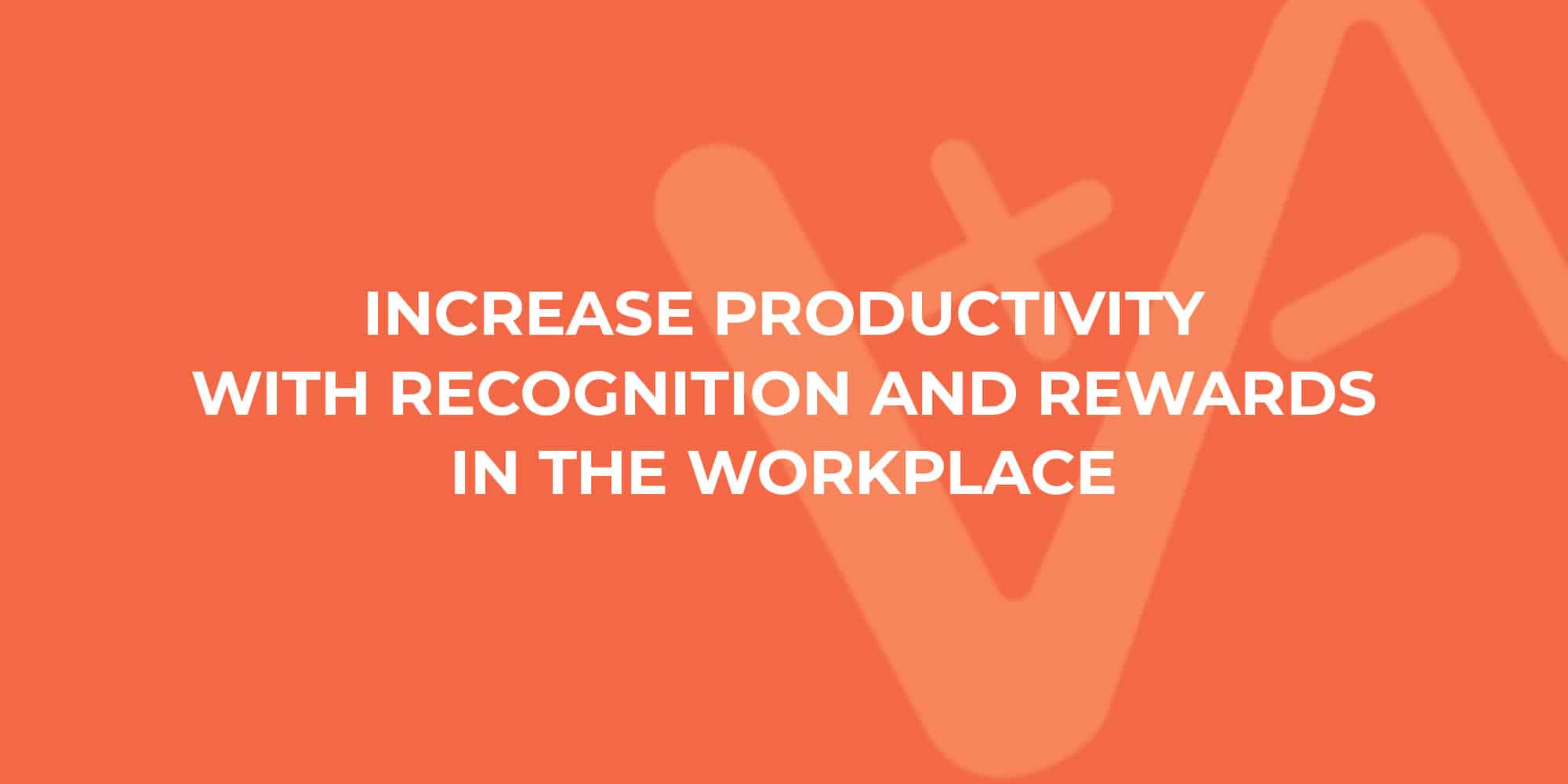Have you ever worked at a job where you feel like you are not being appreciated or recognized for your hard work?
Let me answer for you… of course you have, and you’re not alone! Many people feel as though they are overworked and underappreciated. If this isn’t the case for you, then you are part of the lucky few.
One of the biggest problems within a workforce is lack of recognition for your hard work. Furthermore, a workplace that does acknowledge and rewards its employees is more likely to retain valuable staff. In fact, 79% of employees polled in 2019 said that an increase in recognition and rewards would make them more loyal to an employer.
If you put in extra hours or go that extra mile, but nobody seems to acknowledge all your hard work, this starts to have an impact on your work – whether you conciously realize it or not. Slowly, you start to resent your job, boss or co-workers. Before you realize it, you stopped trying as hard and just do what you need to do to get by. Eventually it may escalate into you moving on to a different job.
However, what if you were recognized more often or rewarded for beating the deadline?
Increase Productivity with Recognition and Rewards in the Workplace
Businesses with recognition programs outperform those without them by an average of 14%. While those who report being unhappy or planning to leave their current job often report that employee recognition is one of the main reasons, making lack of recognition a costly problem for employers.
In order to help lower the chances of this happening, things will need to change. Thats is where micro-rewards come in. Micro-rewards are small and frequent rewards for completing tasks or reaching goals. By continually getting rewards for performing well in your job it naturally increases motivation. This concept is true not only in the workforce but in many other applications as well.
Business leaders want to know what the secret is to keeping employees happy and engaged. There have been many studies around micro-rewards in the workplace. One study by Kaitlin Woolley and Ayelet Fishbach was published in the Journal of Personality and Social Psychology. In the study, they found that people who received immediate rewards for completing smaller tasks were overall happier.
In addition to this, people who received rewards more frequently lead to added enjoyment in their work and increased interest. This was taken a step further with those same people. They found that the workers continued to remain interested even when there were no more rewards coming in. This showed that the positivity from the rewards and recognition had a lingering effect that lasted even when the rewards stopped.
Woolley stated “If you have a hobby – say you like to knit or quilt – the process itself is enjoyable, it’s intrinsically motivated. You’re doing it just for the sake of doing it, rather than for the outcome.” When employers add micro rewards, this results in a similar outcome. Based on the research Woolley and Fishbach found these immediate rewards will increase the overall experience of the task at hand.
Employees no longer just view it as a job or task that needs to be completed. As you can assume this not only will benefit the employee but also the business. The employee is now happy and engaged in their work. While the business will have a motivated and loyal employee working hard to accomplish tasks. It is ultimately a win-win for all parties involved.
Why Isn’t Everyone Micro-Rewarding?
If the solution is so simple why isn’t every business doing this?
The answer is many of them do not think it is a good idea. People think that by giving employees a bonus too soon or too often can result in some negative consequences. By giving someone something too early, you remove the thing that may be motivating them to work harder. They will then stop working or not work as hard because they do not see the reason to.
While this may be true for some this is not the case for all. “More evidence suggests immediate rewards are beneficial,” said Woolley. “They’re a useful tool for increasing interest in an activity.” Depending on the team lead, manager, owners, etc. they may not know just how impactful a small change like this can have. When businesses grow in size it is often difficult to stay in close communication with every employee. This leads to people not being heard and feeling overlooked. Constantly reminding employees that they are appreciated or noticed will help minimize that.
Another reason businesses are not using micro-rewards is due to the inconvenience it may cause. No one wants to spend time and money on something they don’t see as essential to business success. They haven’t needed to do this before, so why start now? As previously mentioned, when a business grows it becomes too cumbersome to remain in close communication with every employee. Many don’t have the ability to put someone in charge of managing all of that. It is a lot of work to balance how much an employee is getting, how often, how much the business overall is giving to all the employees and so much more.
It is not as simple as just giving something away every so often. Employees have different day to day tasks, goals and etc. Whoever oversees handing out the micro rewards would not only need to set the goals for each employee but also track that they hit them on time. This would result in a lot of hours of work to make sure this was done properly. With multiple micro-rewards, it can get confusing very quickly. This can have business owners feeling like it is more work than it is worth.
However, what if there was a software to help manage all of this? A tool created to solve just this problem for businesses.
Gamification Software for Employee Engagement
This is where an employee workplace gamification & business intelligence platform can help. A software dedicated to fixing the problem that every business faces. No longer do employees need to feel like they are not valued. ZIZO was created for the purpose of helping not only businesses but the people who help keep the business going. ZIZO’s gamification components incentivize staff by rewarding them for achieving daily, weekly, and monthly goals and foster a culture of transparency and accountability.
Instead of just letting employees know via email what the goals are, why not turn it into something fun that they can look forward to? ZIZO gives managers the ability to create contests and tournaments based on specific KPI’s. 1v1, collaborative goals, team competitions and battle royale tournaments make achieving goals fun and engaging. Employees are challenged to hit targets, and in return, they earn Z Coins and Z Bucks that have real monetary value and can be cashed in for rewards like office perks or merchandise. With all of this in one dashboard it makes managing very easy!
High attrition rates are often due to employees feeling as if they don’t have a future in their current roles. When there is no defined career path, employees aren’t entirely sure what achievement means and how it will impact them. With ZIZO’s rank and level system, employees can see exactly where they are headed, how to get there, and what awaits them at the top.
Because it is bidirectional, they also know they need to continue performing if they want to continue climbing the ladder. Everyone can see the performance of their coworkers and how they match up. If an employee goes the extra mile, they will be rewarded for it right away. Management will see that they exceeded expectations and will have an opportunity to thank them within minutes.
Boost The Bottom Line With Micro-Rewards
In an interview CEO of ZIZO Jimmy Chabat said,
“Be agile. This has been the most crucial lesson I’ve learned across all of my business ventures. …, a great company is one that grows, leads, innovates and adapts. Agility is the trait which allows a company to do all of those things.”
As you’re probably well aware, the workforce is continually changing and so should you. Some of you might be asking why should a business care about micro-rewards so much? Shouldn’t the employee just be thankful they have a job? To be honest, if employees do not feel like they are being recognized or rewarded properly they will just leave. An employee leaving results in a business losing money.
Gone are the days where employees will remain with a company for 20+ years.
If an employee does not feel appreciated, they will search elsewhere for someone who will appreciate them. With remote working becoming more popular it will open more doors for employees to find new jobs. So, keeping them happy will ensure that they do not go looking elsewhere. If an employee leaves their job, the cost to fill the position and train a new employee could be thousands of dollars, if not more. If it happens frequent enough this can cause a serious problem and lead to a lot of money being wasted.
“Today’s $46 billion market for recognition, with its focus on tenure-based programs, clearly is failing, and is out of sync with modern employment practices,” said Josh Bersin, Chief Executive Officer and President, Bersin & Associates. “This new research highlights a huge opportunity for companies to redirect existing expenditures to programs that significantly influence engagement and retention. The findings also suggest that recognition programs should align with an organization’s comprehensive performance management strategy to drive business results.”
From a business standpoint this shows the importance of a small gesture saying thank you. A few micro-rewards spread out strategically thanking an employee for all their hard work will go along way. From a money standpoint this would be a great investment for a business. Making someone feel appreciated for their work is as valuable now as it has always been.



